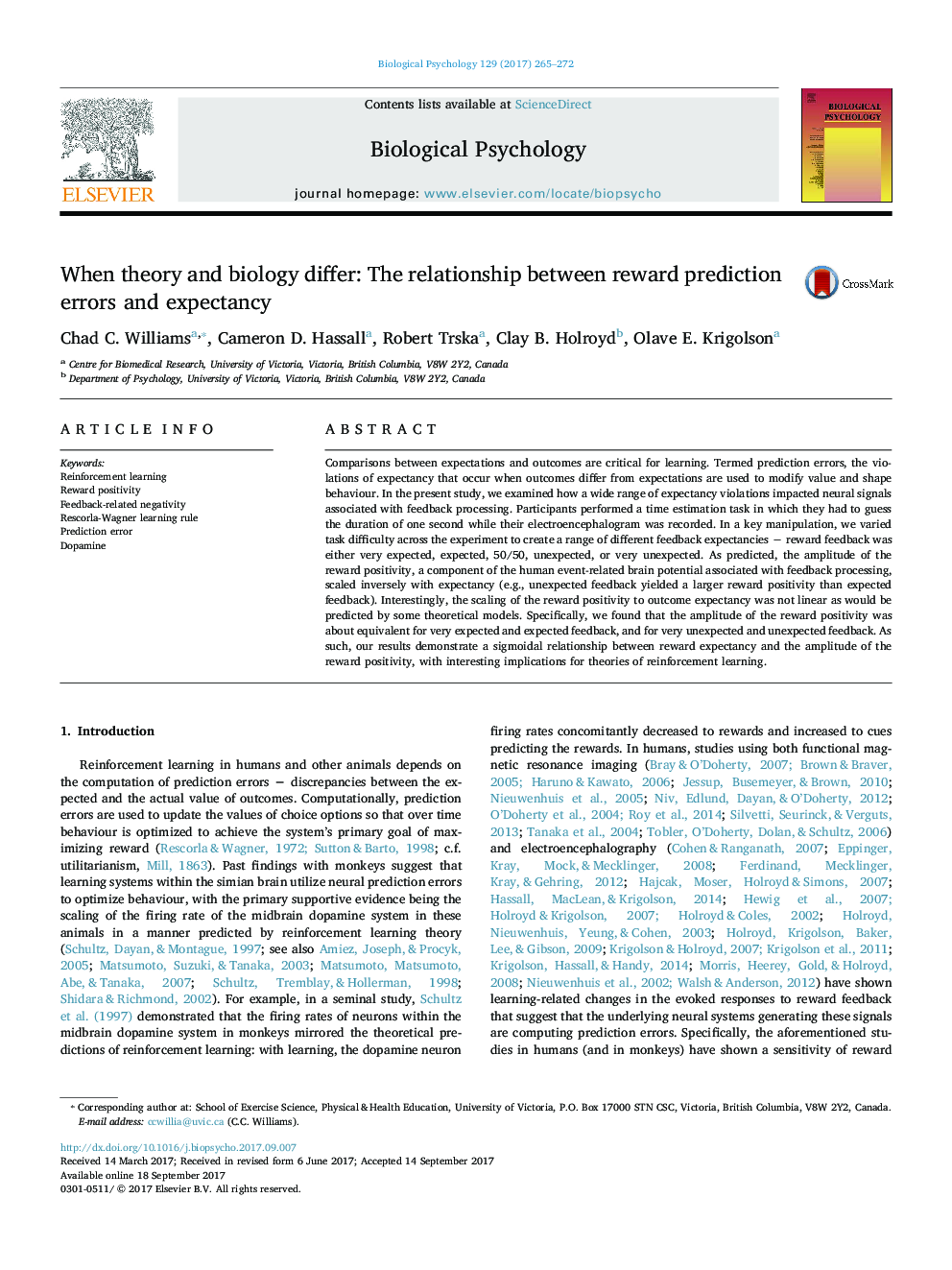| Article ID | Journal | Published Year | Pages | File Type |
|---|---|---|---|---|
| 5040359 | Biological Psychology | 2017 | 8 Pages |
â¢The relationship between reward expectancy and the reward positivity is sigmoidal.â¢This non-linear trend follows the biological principles of the dopamine system.â¢Our results suggest a revision of reinforcement learning mathematical models.
Comparisons between expectations and outcomes are critical for learning. Termed prediction errors, the violations of expectancy that occur when outcomes differ from expectations are used to modify value and shape behaviour. In the present study, we examined how a wide range of expectancy violations impacted neural signals associated with feedback processing. Participants performed a time estimation task in which they had to guess the duration of one second while their electroencephalogram was recorded. In a key manipulation, we varied task difficulty across the experiment to create a range of different feedback expectancies â reward feedback was either very expected, expected, 50/50, unexpected, or very unexpected. As predicted, the amplitude of the reward positivity, a component of the human event-related brain potential associated with feedback processing, scaled inversely with expectancy (e.g., unexpected feedback yielded a larger reward positivity than expected feedback). Interestingly, the scaling of the reward positivity to outcome expectancy was not linear as would be predicted by some theoretical models. Specifically, we found that the amplitude of the reward positivity was about equivalent for very expected and expected feedback, and for very unexpected and unexpected feedback. As such, our results demonstrate a sigmoidal relationship between reward expectancy and the amplitude of the reward positivity, with interesting implications for theories of reinforcement learning.
